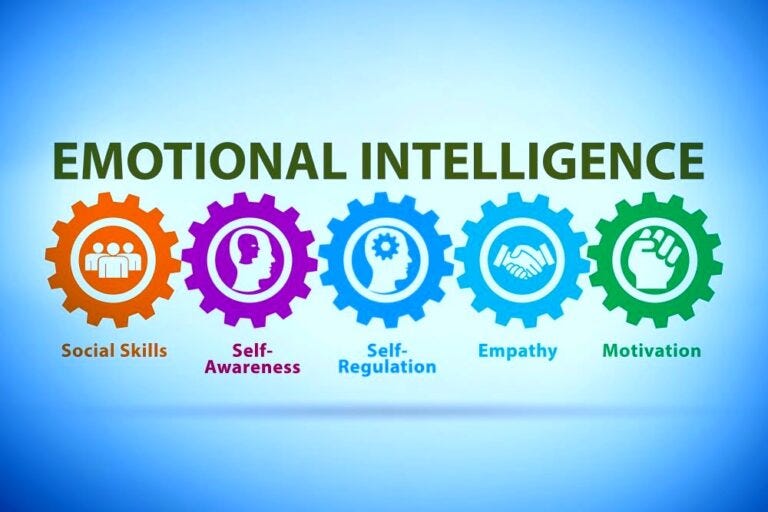Burned Out and Looking for a Way Out...
How emotional intelligence can help us deal with burnout.
Hi everyone!
Today I have for you a guest post from Todd Payne, an Emotional Intelligence coach, sharing his experience of how emotional intelligence work helped him deal with his burnout.
I hope you’ll find his insights useful! Here’s Todd’s guest post.
For 20 years in my first career, I navigated the complexities of a demanding job as an ordained minister. I worked 60-hour weeks with never-ending waves of deadlines and high-pressure situations, sometimes literally life and death. I spent my days overseeing a team of a dozen employees and my nights and weekends tending to more than 500 parishioners.
After years of go, go, go, I began to feel the insidious onset of burnout, a phenomenon all too common in high-pressure environments. my once-vibrant enthusiasm and energy were gradually being overshadowed by a relentless cycle of stress and diminishing returns. I had nothing left to give.
My burnout was characterized by the classic signs: emotional exhaustion, cynicism, and a diminished sense of personal accomplishment. Today, in our fast-paced work culture, burnout is an increasingly prevalent reality.
Thankfully, my boss recognized my burgeoning burnout and stepped in to help me before it was too late. The greatest gift he ever gave me was pointing me to an Emotional Intelligence, or EQ, coach who would teach me the tools I needed to handle burnout. I was quite surprised that Emotional Intelligence had anything to do with what I was experiencing.
EQ is all about the ability to understand and manage one’s emotions, as well as to identify and influence the emotions of others. EQ is a vital asset when facing occupational stress, offering lots of benefits to mitigate burnout.
First, EQ teaches stress management. Burnout is less about the presence of stress and more about how one copes with it. Individuals with high EQ can effectively recognize and address stress early on, using techniques grounded in emotional intelligence, such as mindfulness, to alleviate its impact.
Moreover, EQ strengthens empathy and communication, pivotal in cultivating supportive work environments. In high-stress settings, the capacity to empathize and communicate effectively with colleagues can create a collaborative, rather than competitive, atmosphere, serving as an essential defense against burnout.
Additionally, self-awareness, a cornerstone of EQ, enables individuals to recognize their limits and establish healthier work-life boundaries. This self-awareness is instrumental in maintaining balance and preventing burnout.
Leadership, too, is significantly enhanced by EQ. Leaders equipped with emotional intelligence foster positive work cultures, prioritize mental health, and can proactively address signs of burnout in their teams.
Resilience, also bolstered by EQ, is another key factor. High EQ individuals maintain a positive outlook and can reframe challenges as opportunities for growth, enhancing their capacity to refrain from acting on negative emotions and more quickly recover from setbacks. Improving one's EQ leads to increased personal accomplishment and job satisfaction.
Managing emotions effectively translates to more meaningful work interactions and a counterbalance to the reduced sense of accomplishment often associated with burnout.
When I spent my time and energy, which was in short supply, less on my work, and more on working with an EQ coach, I experienced a pivotal shift in my recognition and response to burnout. My coach helped me to adopt mindfulness practices, hone my emotional responses, and improve my communication with colleagues. By setting boundaries and prioritizing my well-being, I not only alleviated my burnout but also enriched my professional and personal life.
Cultivating EQ is a strategic approach to combat professional burnout. It improves stress management, empathy, resilience, and personal satisfaction, transforming the workplace from a source of stress to an arena of fulfillment and growth. As the demands of professional life persist, EQ emerges as a crucial skill for thriving in our careers, just as my journey illustrates.
I could never have experienced such growth on my own. Having an EQ coach was an essential part of the process to understand what needed to be done and to have the support I needed to see it through.
Ultimately I was so moved and empowered by Emotional Intelligence work, I left my first career behind to coach others on how to improve their EQ and feel renewed, energized, and happier.
If you’re ready to stop feeling caught in the never ending cycle of overextending yourself, wasting your life force and seeing diminishing returns, consider booking a free consultation to learn more about how improving your Emotional Intelligence is the key to feeling balanced, energized, and alive. Go to bit.ly/eq_coach to book your call.


